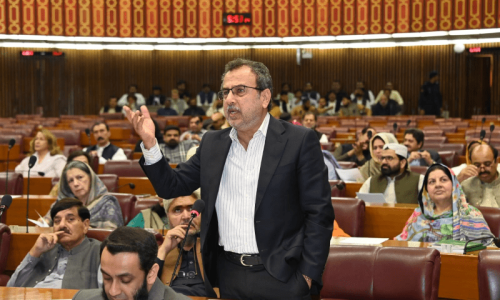ISLAMABAD: The Asian Development Bank, in a report released on Thursday measuring and evaluating facilitation of trade along the Central Asia Regional Economic Cooperation (Carec) nations, identified major inefficiencies in Pakistan’s border trade costs and procedures.
The ADB’s Carec corridor performance report pointed out that the dwell time in Karachi seaports averaged five to seven days for containerised goods bound for Afghanistan, with shippers citing customs procedures, excessive inspection, and port congestion as the primary causes in delay.
The inefficiencies identified in the data include a long dwell time at Karachi seaport, delays at border crossing points (BCPs) due to customs clearance, and relatively high transport costs.
The BCPs highlighted long border-crossing times, as observed in Peshawar (33.5 hours) and Chaman (65.2 hours).
In addition, it said the transport costs are relatively high. The Corridor Performance Measurement and Monitoring (CPMM) estimated that shipment of a 40-foot container from Karachi to Jalalabad costs close to $4,000, which translated to $1,320 per tonne over 500km.
The findings highlight impediments that were detrimental to Pakistan’s competitiveness, where the road sector accounts for 96 per cent of all freight movements.
Many factors contributed to high road freight costs, including road infrastructure, less efficient domestic trucks, and lack of a strong local transport equipment manufacturing sector to produce high-quality vehicles.
The report recommended the government to include private sector stakeholders in the development of national transport policy.
Domestic carriers, fleet operators, stevedores, integrated logistics service providers, and freight forwarders should be included as active stakeholders in this process to capture a comprehensive private sector perspective.
Moreover, the bank advised the government to initiate a truck renewal programme since the road sector is dominant in the country and road freight costs are high, leading to perennial problems of lack of access to capital and the trucking industry’s low profitability.
Published in Dawn, November 15th, 2019















































Dear visitor, the comments section is undergoing an overhaul and will return soon.